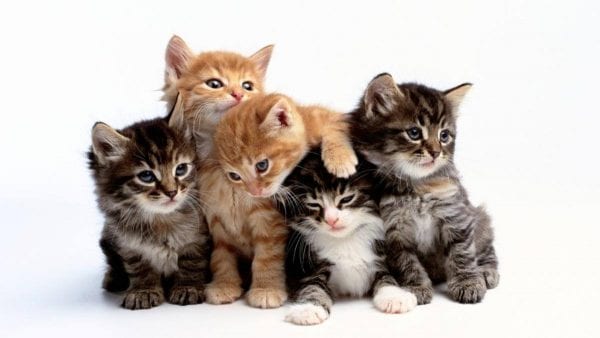5- Why are cats shivering
5- Why are cats shivering
Involuntary muscle twitching is a disease of cats and occurs to them without other pets for various reasons. Muscle twitching usually occurs in response to irritants or emotions and is not necessarily associated with any medical condition. It is also possible for tremors to be caused by a genetic condition and is not treatable, but it is not serious.
In some cases, shivering occurs as a symptom of another disease or disorder. Some medical conditions that cause muscle twitching can be severe and potentially life-threatening. If muscle twitching persists, seek medical attention
Causes of muscle twitching in cats
.Various conditions may cause involuntary muscle twitching as a symptom, or there may be no apparent cause. The twitching or shivering could be part of a cat’s normal response to certain stimuli in its environment, or it could be an emotional response. Involuntary twitching can also be a prerequisite, rather than a symptom of something else. Some of the possible causes of involuntary muscle twitching in cats and other animals include
nervous system disorder
Renal failure
Certain toxic or poisoning drugs
injury or trauma
Strong emotional responses such as excitement, fear, or anxiety, and the stages of deep sleep

Diagnosing muscle tremors in cats
Various diagnostic techniques may be needed to determine what is causing the shivering or tingling. Your vet will start with a complete physical examination and medical history, in which you should discuss any symptoms you have noticed, including the extent to which shivering has occurred and which parts of the cat’s body are affected. If the shivering is accidental and does not happen all the time, a video recording of the shivering may help your vet establish a diagnosis. The veterinary staff will take samples of the cat’s blood and urine for laboratory analysis
The blood sample will be tested for blood cell count, biochemistry, electrolyte plates and antibodies that may indicate an infection, urinalysis and appropriate kidney function analysis will be checked using a urine sample. Additional diagnostic methods, including X-rays or other imaging techniques, may be needed to properly diagnose your pet
Treating muscle tremors in cats
The treatment method used by the vet will be determined by their diagnosis of the underlying cause of the shivering, these treatments may vary greatly depending on the condition causing the shivering, and may include surgery, medication, or other methods. If no cause is identified, treatment may be prescribed to help reduce shivering
Some of the common treatments used for muscle tremors include: Muscle relaxants, medications in this class are designed to relax muscles, which may help reduce or eliminate tremors. This treatment must be administered correctly to your pet’s size and physical condition to reduce the risk of side effects
Antidepressant medications, or anti-anxiety medications, if the cause is determined to be psychiatric, medications designed to improve the psychological state may be recommended. Appropriate dosing is needed with this type of treatment to reduce the risk of side effects
If the underlying cause is treatable, most cats will make a full recovery as long as they respond well to treatment. Some causes of involuntary muscle twitching, such as kidney failure or some types of cancer, are noninvasive and life-threatening. In these cases, recovery may not be possible. In any case, your care and support will benefit your pet

